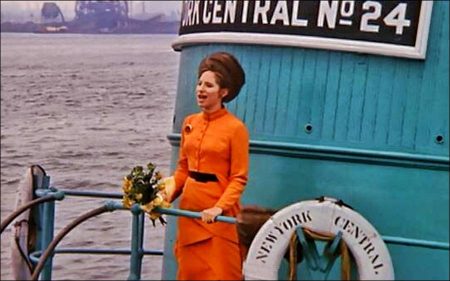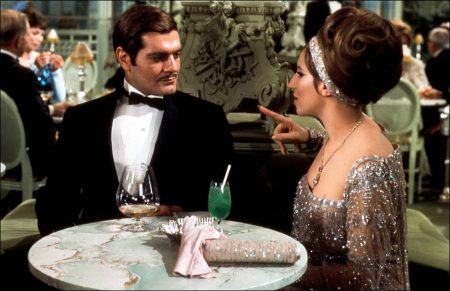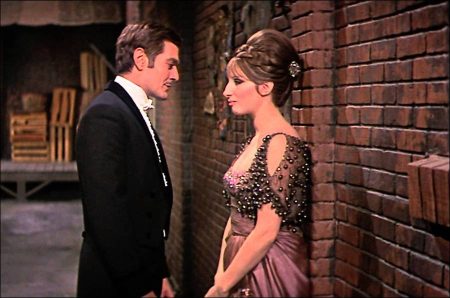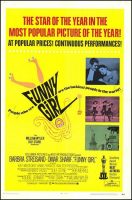Taglines: Hello, gorgeous!
Funny Girl movie storyline. Early 20th century New York. Fanny Brice knows that she is a talented comedienne and singer. She also knows that she is not the beauty typical of the stage performers of the day, she with skinny legs and a crooked nose among other physical issues. So she knows she has to use whatever other means to get her break in show business, that break so that she can at least display her talents.
With the help of Eddie Ryan who would become her friend, Fanny is able to get a part in a novelty act in a vaudeville show, the renown from which eventually comes to the attention of famed impresario Florenz Ziegfeld Jr.. Fanny does become one of the Ziegfeld Follies most popular acts, despite she almost getting fired after her first performance by defying Flo’s artistic vision for her closing number.

Beyond stage success, Fanny also wants a happy personal life, most specifically with the suave Nicky Arnstein, a gambler in every respect of the word. Fanny loves him and loves that he loves her despite her lack of traditional beauty, but she does not love that he comes in and goes out of her life based on his financial standing at any given time and his need to earn that quick buck by the next poker game or high stakes business deal as he feels he needs to play the traditional role of money maker in their relationship on his own terms.
Funny Girl is a 1968 American biographical musical comedy-drama film directed by William Wyler. The screenplay by Isobel Lennart was adapted from her book for the eponymous stage musical. It is loosely based on the life and career of Broadway and film star and comedian Fanny Brice and her stormy relationship with entrepreneur and gambler Nicky Arnstein.
Produced by Brice’s son-in-law, Ray Stark, with music and lyrics by Jule Styne and Bob Merrill, the film stars Barbra Streisand (in her film debut reprising her Broadway role) as Brice and Omar Sharif as Arnstein, with a supporting cast featuring Kay Medford, Anne Francis, Walter Pidgeon, Lee Allen, and Mae Questel. It was the first film by Stark’s company Rastar.
A major critical and commercial success, Funny Girl became the highest-grossing film of 1968 in the United States and received eight Academy Award nominations. Streisand won the award for Best Actress for her performance, tying with Katharine Hepburn (The Lion in Winter). In 2006, the American Film Institute ranked the film #16 on its list commemorating AFI’s Greatest Movie Musicals.
Previously it had ranked the film #41 in its 2002 list of 100 Years… 100 Passions, the songs “People” and “Don’t Rain on My Parade” at #13 and #46, respectively, in its 2004 list of 100 Years… 100 Songs, and the line “Hello, gorgeous” at #81 in its 2005 list of 100 Years… 100 Movie Quotes. Funny Girl is considered one of the greatest musical films ever. In 2016, Funny Girl was deemed “culturally, historically, or aesthetically significant” by the United States Library of Congress, and selected for preservation in the National Film Registry.
Funny Girl (1968)
Directed by: William Wyler
Starring: Barbra Streisand, Omar Sharif, Kay Medford, Anne Francis, Walter Pidgeon, Lee Allen, Mae Questel, Penny Santon, Gertrude Flynn, Mittie Lawrence, Thordis Brandt, Bettina Brenna
Screenplay by: Isobel Lennart
Production Design by: Gene Callahan
Cinematography by: Harry Stradling, Sr.
Film Editing by: William Sands, Maury Winetrobe
Set Decoration by: William Kiernan
Art Direction by: Robert Luthardt, Linus Aaberg
Music by: Jule Styne, Bob Merrill
MPAA Rating: None.
Distributed by: Columbia Pictures
Release Date: September 18, 1968
Views: 298


